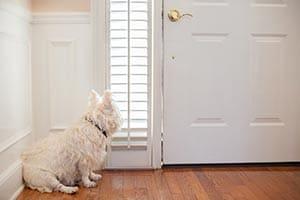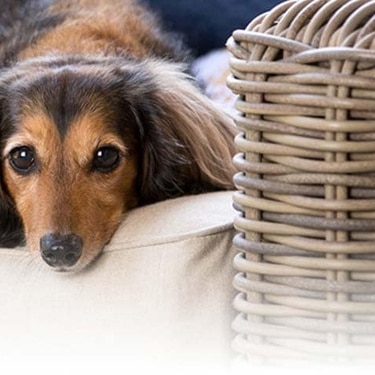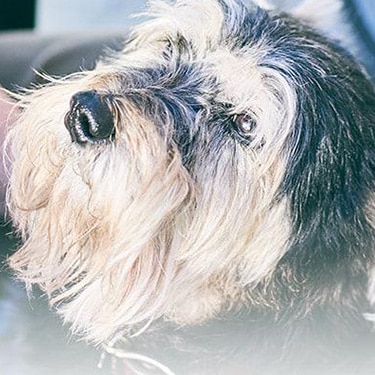
-
Find the right food for your petTake this quiz to see which food may be the best for your furry friend.Find the right food for your petTake this quiz to see which food may be the best for your furry friend.Health CategoryFeatured products
 Adult 11+ Small & Mini Chicken, Brown Rice & Barley Recipe Dog Food
Adult 11+ Small & Mini Chicken, Brown Rice & Barley Recipe Dog FoodFor the unique nutritional needs of mature Small & Mini Dogs
Shop Now Adult Small & Mini Lamb Meal & Brown Rice Recipe Dog Food
Adult Small & Mini Lamb Meal & Brown Rice Recipe Dog FoodFor the faster metabolism of Small & Mini dogs
Shop Now Puppy Savory Stew with Chicken & Vegetables Dog Food
Puppy Savory Stew with Chicken & Vegetables Dog FoodChicken & Vegetables recipe with great taste and precisely balanced nutrition to help your puppy build immunity and strong bones
Shop NowFeatured products Adult Sensitive Stomach & Skin Pouch Variety Pack Cat Food, Chicken & Beef, Salmon & Tuna
Adult Sensitive Stomach & Skin Pouch Variety Pack Cat Food, Chicken & Beef, Salmon & TunaCarefully made, gourmet daily nutrition. Tasty chunks with Salmon & Tuna in a decadent gravy. Supports digestive health, nourishes skin and promotes a lustrous fur.
Shop Now Adult Perfect Weight Salmon & Vegetable
Adult Perfect Weight Salmon & VegetableOver 70% of cats lost weight within 10 weeks when fed this nutrition
Shop Now Sensitive Stomach & Skin Chicken & Beef Dinner
Sensitive Stomach & Skin Chicken & Beef DinnerGourmet daily nutrition, carefully made. Tasty chunks with chicken & beef in a decadent gravy. Supports digestive health, nourishes skin and promotes a lustrous fur.
Shop Now -
DogCat
- Cat Tips & Articles
-
Health Category
- Weight
- Skin & Food Sensitivities
- Urinary
- Digestive
- Kidney
- Dental
- Serious Illness
-
Life Stage
- Kitten Nutrition
- Adult Nutrition
Featured articles Water
WaterWater is the most important nutrient of all and essential for life. Animals can lose almost all their fat and half their protein and still survive, but if they lose 15% of their water, it will mean death.
Read More The Right Diet For Your Pet
The Right Diet For Your PetLearn what to look for in healthy pet food & nutrition, including ingredients, quality of the manufacturer, your pet's age, and any special needs they have.
Read More Pet Food Storage Tips
Pet Food Storage TipsWhere you store your cat and dog food can make a big difference in the quality and freshness once it is opened. Here are some common questions and recommendations for optimal storage for all of Hill’s dry and canned cat and dog food.
Read More -


Puppy potty training is one of the first things you'll do to help you dog get acquainted with his new home, and there are many ways to go about it. Try these seven suggestions to set you and your canine up for success.
1. Stick to a Potty Spot
Before you begin puppy potty training your new pal, decide where you'd like him to "go" outside of the house. Do you have a yard? Direct him to a location that's quick to get to from the door. Apartment-dwelling dogs should also be able to identify natural, easy-to-reach ground that isn't in the way of foot traffic—or cars, for that matter.
Once you've determined where you'll bring your dog during this training phase, make sure you take him to the same area every time he goes outside to do his business. Dogs can smell their territory, so consistency is important when you're house training a puppy.
2. Learn the Signs of Needing to Go
Your new puppy might not speak the same language, but he's trying to tell you that he needs to eliminate. Luckily there are certain signs for which you can keep a lookout. Immediately bring your dog outside to his special potty spot when you see him:

- Smelling his rear
- Pacing in circles
- Barking or scratching at the door
- Sniffing the floor
- Squatting.
He may show the last sign a bit too late, but be ready to open the door anyways so he will know that his usual area is up for grabs before he goes in the wrong place.
You'll need to quickly bring your dog outside when you see any of these signs, so plan ahead. Keep a leash right at the door, allowing you to usher him outside as quickly as possible. And once he learns where his special potty area is, he'll return to it all on his own. Just don't forget to choose the same spot every time your dog needs to relieve himself.
3. Make Meal Time the Same Time
When house training a puppy, keep all meal and snack times scheduled. This is helpful for two reasons: First, scheduled meals will teach your dog when he can expect to eat throughout the day. Second, if you're feeding your dog at specific times, you can follow up and bring him to his potty spot with the expectation that he'll be ready to go soon after he finishes eating.
4. The Water Bowl
If your dog is a heavy water-drinker, chances are he'll be a frequent urinator as well. To rule out any accidents, take your puppy out shortly after drinking during the puppy potty training phase so he's in the right place at the right time.
5. Go Outside Often
If you want to be sure your canine keeps the potty outside, you'll have to bring him out yourself regularly. As a general rule it is a good idea to take your pup out first thing in the morning, after all feedings, and anytime you see any cues that he might need to go. For really young puppies, it is often a good idea to take him out every hour to avoid accidents until you get a better idea of how often he does his business. Then, over time you can lengthen the time between trips outside until you're confident that he will tell you when he needs to go out on his own. You should also bring your dog outside right before you go to sleep—your 3 a.m. self with thank you for it. Dogs should be brought outside within thirty minutes of every feeding to encourage a bowel movement.
6. Praise Helps
Everyone likes to know when they're doing a good job, and your puppy will thrive on this positive reinforcement. It doesn't matter if you praise him with treats or say "good job" while petting him. Just make sure he knows you appreciate his efforts to do things the right way.
7. Calmly Address Accidents
When your dog eliminates in your home, be calm and collected when addressing the situation. Redirect him outside into his designated potty spot right away, but understand that accidents are a natural part of the house training process. Have patience and don't give up! Never punish a dog for accidents because it may make the situation worse and result in more accidents in the home.
The most important thing you can do is clean the area as quickly and as best as possible. If your dog smells urine or feces in your home, he'll be confused and think it's fine to relieve himself there in the future. As long as he knows where to mark his territory, he'll have fewer problems. When cleaning the soiled spot, make sure to use pet-safe cleaners and keep him away from the area while it dries.


Tasty Tips
8. Preparing for Varying Situations
There are a number of situations that might come up during your puppy's potty training phase for which you will want to be prepared. Below are a few scenarios to ready yourself against:
Introducing Your Puppy to New People and Places
After getting a new pup, you will likely want to show him off to friends and family. The excitement of greeting any new stranger can sometimes be too much for your dog's bladder to handle. Knowing this ahead of time can help you prepare to avoid accidents. Make sure you take him out before you introduce him to anyone new during the potty training phase; this includes both in your own home or a new place.
Additionally, if you take your pup to a friend or family member's house with other dogs he might sniff around and try to mark his territory, so make sure to keep an eye on him and take him outside frequently. He can mark as many bushes as he wants outside the home.
Traveling with a House Training Puppy
Just because you get a new puppy doesn't mean you have to put your life on hold. You might still be enticed to take a road trip to find better weather and excitement. If this is the case you need to decide whether or not you are going to take him with you or have someone watch him while you're gone. If you decide to take him with you, it is important that you take him out before you leave and stop every couple of hours to let him do his business. No one in the car will want to deal with a car that smells like dog urine the whole trip... or worse. If you decide to board your puppy or have a family member/friend watch your dog, make sure to let them know that he is in the middle of potty training. Give them step-by-step instructions on how you've been working with him to keep it consistent. There are fewer things harder for a dog to understand than when there isn't consistency in his training.
Planning for Bad Weather
Undoubtedly, you'll experience some bad weather at some point during your dog's potty training phase, so you'll want to be prepared for it. If it is raining, you cannot expect your dog to hold his bladder so make sure to keep a large umbrella close to the door to keep both you and your pooch dry. Also, having a towel to dry off his feet after you go outside will help avoid having to clean up a different type of accident of muddy paws on everything. If it snows, your new pup might be a little confused on what this new white stuff is that is all over the ground. It's okay to let him explore and play in it a little, but keep in mind that dogs can get cold just as humans, so you'll want to limit his exploring and make sure he does his business. If he has a common spot where he goes to the bathroom, you may want to take a snow shovel and shovel out a path to it so he can relieve himself in a more familiar way. Again, consistency is key when training your pup.
Moving
Whether your dog is a new puppy or a well-trained adult dog, deciding to move from one place to another can sometimes put additional stress on your dog. Keep this in mind as he will want to explore your new place, and might even try to mark his territory. To help him acclimate to his new surroundings, immediately take him out to the spot where you would like him to relieve himself like you did at your previous home. Take him out frequently to this spot, and reward him with praise or treats when he goes to the bathroom here to rebuild his association with a good behavior. It might also be a good idea to restrict him to small areas of the new home until he starts to become more familiar with his bathroom routine. You don't want to end up finding a surprise in a part of the house in which you didn't know he had access.
Whatever the situation, the best thing you can do is to try and keep your furry best friend calm. Excited, stressed, or scared dogs are more prone to accidents in the home, even if they are the best trained dog.
9. Larger Issues
Finally, if your training doesn't seem to be taking with your pooch it might be worth a trip to the veterinarian. Frequent urinating or defecating in the house can be a sign of a larger health issue. If this is something you suspect, contact your vet's office immediately and let them know about your concern. They might simply recommend a simple change to your training routine or a change to his food, but for larger issues you'll be glad you called sooner rather than later.


Erin Ollila believes in the power of words and how a message can inform—and even transform—its intended audience. Her writing can be found all over the internet and in print, and includes interviews, ghostwriting, blog posts, and creative nonfiction. Erin is a geek for SEO and all things social media. She graduated from Fairfield University with an M.F.A. in Creative Writing. Reach out to her on Twitter @ReinventingErin or learn more about her at http://erinollila.com.
Related products

Gentle on stomachs while nourishing skin & supporting development in growing puppies

Supports energy level, joint health, and beautiful coat in large breed mature dogs

Advanced nutrition shown to support joint health and improve mobility

This weight management and mobility support dog food was created with Hill’s unique understanding of the biology of overweight dogs.
Related articles

Selecting the right food for your puppy is a key to quality nutrition and a long, healthy life., Learn more about how to select the right puppy food.

Learn what you can feed your pregnant or nursing dog to keep her and her new pups healthy.

A dog with a sensitive stomach has special needs. Learn more about sensitive stomach symptoms in your dog, what you can do to help sooth your pet’s insides and get recommendations on sensitive stomach dog food.

Though it may seem like your four-legged friend loves nothing more than to nap on the couch, dogs need regular exercise to stay healthy just like people do.

Put your dog on a diet without them knowing
Our low calorie formula helps you control your dog's weight. It's packed with high-quality protein for building lean muscles, and made with purposeful ingredients for a flavorful, nutritious meal. Clinically proven antioxidants, Vitamin C+E, help promote a healthy immune system.
Put your dog on a diet without them knowing
Our low calorie formula helps you control your dog's weight. It's packed with high-quality protein for building lean muscles, and made with purposeful ingredients for a flavorful, nutritious meal. Clinically proven antioxidants, Vitamin C+E, help promote a healthy immune system.

